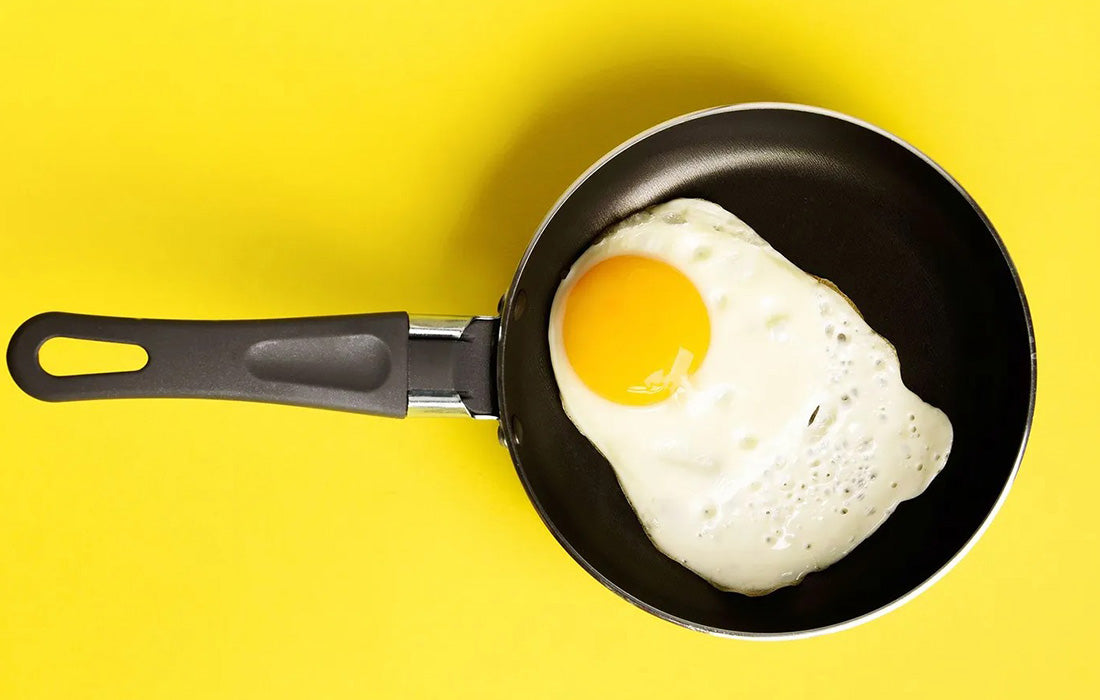It’s Friday and our head nutritionist Ben is back again to answer your questions! We have some awesome questions this week, don’t forget to keep sending them in.
Congratulations to Allison, Julian, and Colleen who all won $20 gift vouchers just for asking Ben a question. You can always ask Ben a question at ben@13seeds.com.au
This week’s questions are:
- Allison: I’ve been told that eggs are bad for you, is this true?
- Julian: Best tips for delayed onset muscle soreness (DOMS)?
- Colleen: Just wondering do I need to eat greens if I’m taking your hemp super greens protein powder?
1. I’ve been told that eggs are bad for you, is this true?
So why does everyone think that eggs are bad? Well, as we discussed in the Friday Q&A two weeks ago we learned that fats aren’t actually bad for you and this concept has been misunderstood for a long time. Along with the notion that fats are bad for you, came the “cholesterol is bad for you” statement and guess what eggs contain… a large amount of Cholesterol! But what is cholesterol and why does it matter?
Cholesterol, a yellowish fat produced in our liver and intestines and can be found in every one of our body’s cells. Cholesterol has often been seen as a bad thing, but did you know that cholesterol is needed to produce hormones (such as testosterone and oestrogen), vitamin D and supports healthy cells. Your body makes all the cholesterol it needs, and while the body can absorb cholesterol from foods such as eggs, its effects on blood cholesterol are relatively small (1)
So, what’s the go with cholesterol and heart health? Well, when people say they have high cholesterol they generally aren’t talking about cholesterol itself, instead are referring to lipoproteins that are structures that carry cholesterol in the bloodstream. There are several kinds of lipoproteins, but the two most relevant to heart health are low-density lipoprotein (LDL) and high-density lipoprotein (HDL).
- Low-density lipoprotein (LDL) particles are known as "bad" cholesterol. They deliver cholesterol to cells in the artery (blood vessels) wall, creating plaques that clog arteries that can trigger a heart attack or stroke (2).
- High-density lipoproteins (HDL) are known as "good" cholesterol. They remove cholesterol from artery walls and return it to the liver for excretion (3).

Photo credit: https://www.healthdirect.gov.au/what-is-cholesterol
While in the past, cholesterol has been blamed for heart disease (as you may have seen in the margarine ads) (4) .. It’s now more evident that trans fats, refined sugars and saturated fats (without adequate healthy fats eg. polyunsaturated fats such as hemp seed oil or fish oil) could explain the increase in heart disease, so avoid margarine and foods that are high in sugar, deep fried, or excessive animal fat (5)(6).
In fact, eating eggs may provide many other benefits by containing choline, a nutrient that is required to produce acetylcholine, a neurotransmitter (brain chemical) that plays an important role in regulating memory, mood and intelligence (7). Eggs also contain antioxidants lutein and zeaxanthin, that are both found in the yolk that support eye health by reducing the risk of macular degeneration and cataracts (8).
2. Best tips for delayed onset muscle soreness (DOMS)?
Delayed onset muscle soreness aka DOMS is pain or discomfort that occurs as a result of muscle damage after strenuous exercise, more so after resistance (weight) training. It usually appears one to two days after the damage is done and can last for several days.
The severity of soreness depends on how much muscle damage occurred. Generally, greater soreness occurs with new movements (like when you start a new exercise routine) and eccentric muscle contractions (for example, the "lowering" portion of lifting exercises, landing from a jump or downhill running).
Basically, when you exercise, you cause damage to muscle cell membranes, which creates inflammation. Your body senses the damage and generates an inflammatory response, sending white blood cells and extra fluid to the damaged muscle cells. All this extra "stuff" causes swelling, leading to the pain, stiffness and weakness associated with DOMS.
So how can you manage DOMS?
While there is limited evidence there are some things that may reduce DOMs that include
- Stretching
- Warming up
- Light exercise after DOMs
- Massage
- Foam rolling
- Compression
- Acupuncture
- Icing
- Sleep
- Cryotherapy
- Anti-inflammatory drugs (NSAIDs) (9)
- Omega 3 fatty acids found (hemp seed oil) (10)
3. Just wondering do I need to eat greens if I’m taking your hemp super greens protein powder?
Awesome question Colleen. I recently wrote a blog post all of about the benefits of consuming super greens that you can read here. We recommend to always consume our products in conjunction with a balanced diet that includes lots of fresh fruit and vegetables, quality protein and healthy fats.
Green leafy vegetables are a great source of nutrients that includes fibre, B vitamins, magnesium, vitamin c, vitamin K and antioxidants such a beta-carotene, flavonoids and sulphoraphane. These nutrients could explain green leafy vegetables role in reducing the risk of heart disease and cancer (11).
While our hemp seed protein is a great source of protein containing all 9 essential amino acids, essential fatty acids (omega 3, omega 6, GLA), and a vast array of minerals including zinc, magnesium, iron and calcium. Eating fresh greens daily can further add to a greater nutrient profile and support health even further.
References:
- https://pubmed.ncbi.nlm.nih.gov/19343078/
- https://www.ecrjournal.com/articles/low-density-lipoprotein-cholesterol-and-coronary-heart-disease-lower-better
- https://www.sciencedirect.com/science/article/abs/pii/S0140673614612174
- https://www.ncbi.nlm.nih.gov/pmc/articles/PMC6024687/
- https://pubmed.ncbi.nlm.nih.gov/26429077/
- https://www.bmj.com/content/351/bmj.h3978/rr-11
- http://citeseerx.ist.psu.edu/viewdoc/summary?doi=10.1.1.322.6160
- https://pubmed.ncbi.nlm.nih.gov/10426702/
- https://link.springer.com/article/10.2165/00007256-199520010-00003
- https://pubmed.ncbi.nlm.nih.gov/24150614/
- https://www.sciencedirect.com/science/article/pii/B9780128008720000184
- Cover image: Getty Images







